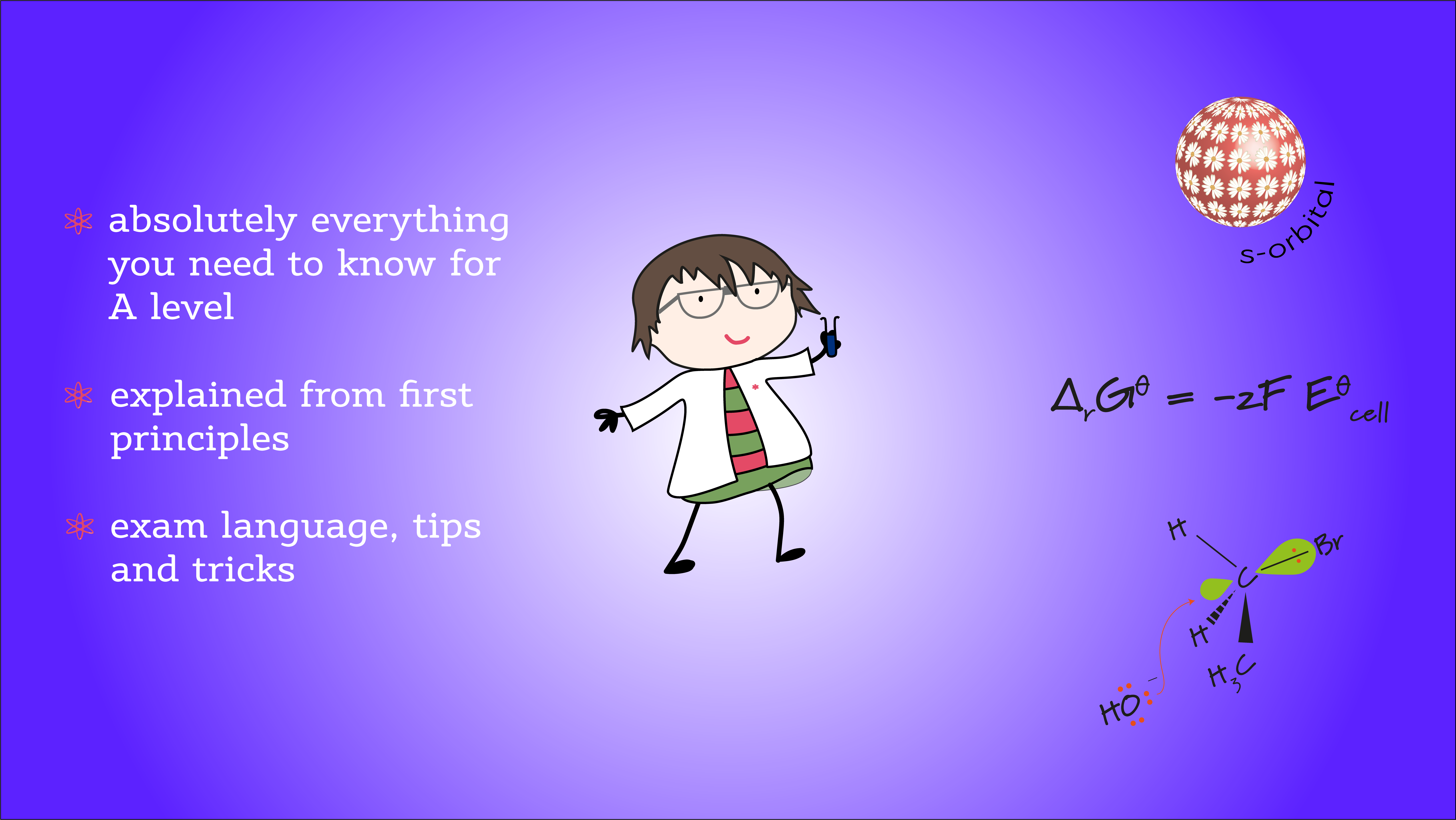Calculations for AS and A level Chemistry
Being confident in tackling different types of mole calculation is the foundation upon which much of A level chemistry stands
The ultimate A level chemistry resource

Being confident in tackling different types of mole calculation is the foundation upon which much of A level chemistry stands
This is a set of more difficult long answer exam questions that require you to use data from mass spectra,
Continue readingMixed spectra long answer exam question practice
24th NOvember 2025 Trending study hacks you should try (and a few you shouldn’t)! Powerful revision strategies and seriously effective
Electrolysis uses electricity (energy) to drive a non-spontaneous reaction which is useful for recharging batteries, splitting water to make hydrogen
Fuel cells commonly use the reaction between hydrogen and oxygen to produce a voltage, with water being the only waste
Modern storage cells (batteries) can be divided into the non-rechargeable kind (primary cells) and the rechargeable kind (secondary cells). Primary
Ecell⦵ (the maximum potential difference between two half cells) is measured when the reactants are under standard conditions (1.00 mol
The spontaneity or feasibility of a reaction can be described by both a positive Ecell⦵ value or a negative value
The rusting of iron can be summarised by the equation 4 Fe(s) + 3 O2(g) + H2O(l) ⇾ 2 Fe2O3•xH2O(s)
A redox reaction consists of two half reactions – an oxidation and a reduction reaction. If we take a pair
Continue readingPredicting the feasibility of redox reactions using standard electrode potentials
We can link any two half cells together to form an electrochemical cell. A high resistance voltmeter prevents current (electrons)
Continue readingDetermining the potential difference of an electrochemical cell
If we place a strip of a metal such as zinc into a beaker containing zinc sulphate (the electrolyte) an
Often writing a half equation to show reduction or oxidation is straight forward – all we need to do is
Continue readingUsing oxidation states to balance half equations